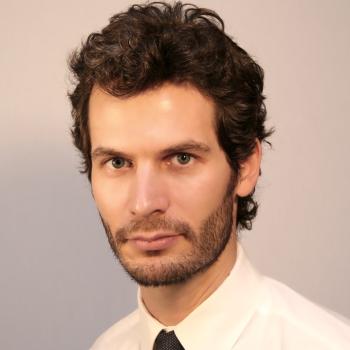

Emmanuel During, MD, a psychiatrist and neurologist with board certification in sleep medicine and director of the Stanford Parasomnia Clinic, will discuss REM-sleep Behavior Disorder (RBD) and other parasomnias as well as his continuing research into possible treatment options for these disorders at the Palo Alto Support Group on Wednesday, February 12, from 2:30-4:00pm, at Channing House in Palo Alto. No RSVP is required to attend.
Here are the meeting details
Where:
Channing House, 850 Webster St., Palo Alto 94301. There is plenty of free street parking along Webster, Channing (which runs eastbound only), and Homer (which runs westbound only). The parking spaces are limited to two hours. Some accessible parking spaces are available near the Channing House entrance at 850 Webster St. Passengers may be dropped off at the front entrance. Valet parking is also available.
When:
Wednesday, February 12, 2:30-4:00pm
About the group:
The Palo Alto Support Group provides educational materials and engaging, knowledgeable speakers for anyone wanting to learn more about Parkinson’s.
We maintain a reminder email list for this group. You may sign up for this and other mailing lists online or at the support group meeting. The meeting is free and open to the public. No RSVP is required to attend.
About the speaker:
Emmanuel During, MD, is a psychiatrist and neurologist with board certification in sleep medicine on Stanford faculty since 2016 as Clinical Assistant Professor with a primary appointment in the Department of Psychiatry – Division of Sleep Medicine, and a secondary appointment in the Department of Neurology. He directs the Stanford Parasomnia Clinic where he evaluates the broad spectrum of parasomnias, including REM-sleep behavior disorder (RBD, abnormal dream-enactment) and other parasomnias such as sleepwalking, sleep talking, sleep terrors and confusional arousals. Lying at the interface of psychiatry, neurology and sleep, the Parasomnia Clinic functions as a platform for high-level specialized clinical care and direct enrollment into clinical trials, particularly for patients with RBD, which in a number of cases is an early sign of neurodegeneration such as Parkinson’s disease or dementia with Lewy bodies.
Dr. During is receiving federal and industry grant support for conducting research on RBD. He is currently the PI of an investigator-initiated sponsored trial investigating a new drug in treatment-refractory RBD (NCT04006925), and serves as site PI for a NIA grant supporting a nation-wide consortium, the North American Prodromal Synucleinopathy Consortium (NAPS), laying the groundwork for a first neuroprotective trial in the pre-Parkinson’s stage of RBD, (NCT03623672). In 2018, he was invited to join a task force group of experts in RBD commissioned by the American Academy of Sleep Medicine (AASM) to issue the upcoming 2020 Clinical Guidelines for the management of RBD. He was invited the same year to join the International RBD Study Group (IRBD-SG), a group of world-experts in RBD ranging from clinicians to basic scientists. His most recent research interest pertains to wearable sleep devices that can potentially monitor RBD activity in patients’ home environment and facilitate early diagnosis.
More information
On the Stanford APDA Information and Referral Center website we have information and resources on sleep issues in Parkinson’s and can help with additional support for those living with Parkinson’s and those that care for them.